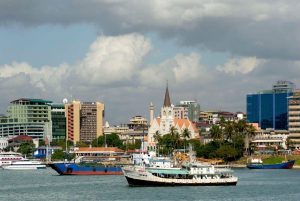The Treasury is preparing undisclosed tax relief to traders and homes under a fresh bailout for coronavirus-hit businesses that will also allow personal borrowers who get into difficulties to extend their loans for up to a year.
President Uhuru Kenyatta on Wednesday said fiscal measures including tax relied will be unveiled in coming days to cushion workers and businesses from the economic slowdown triggered by the virus outbreak.
This came after bankers agreed to offer individuals relief on their personal loans should they encounter challenges and allowed small and medium enterprises to restructure their bank debts at no cost
Fears of contracting the disease has slowed down social activities in the country with malls and restaurants taking a hit, setting the stage for job cuts and reduced pay.
Lockdowns and entry bans imposed around the world to fight coronavirus has hit Kenya’s horticulture and tourism, which generated combined hard currency Sh260 billion last year.
Kenya has seven confirmed cases of Covid-19, and the government has imposed measures aimed at reducing its spread, including banning public gatherings and closing schools indefinitely.
“What we are dealing with primarily is a health crisis. But unfortunately, this is a health crisis that is bound to have financial and economic impact,” said Mr Kenyatta.
“We are also looking at other areas where from a fiscal point of view, we want to see what we can also do to support our people during this difficult time. In due course, we shall brief you.”
Treasury officials remained tight-lipped on the planned tax relief in an economic environment where the government has been battling below-target revenue collections, prompting budget cuts on non-essential items like travel.
Experts reckon Kenya should offer targeted financial packages given its constraints in raising funds, unlike cash-endowed developed economies which are implementing far-reaching fiscal stimulus plans for companies and households.
“While the government would want to issue significant tax reliefs, this looks unlikely given the revenue performance and expenditure needs like salaries and debt repayments,” Nikhil Hira, a director and tax expert at Bowmans law.
Some of the options on the cards include removal of tax on essential items like sanitisers and protective masks, delayed payment of taxes, a rejig of income tax bands to offer higher personal tax relief that stands at Sh1, 408 monthly and a reduction of VAT.
Other tax measures could target sectors heavily hit by the virus such as horticulture, whose earnings fell seven percent last year to Sh142.72 billion, and tourism, which could benefit from reduced taxation.
“What the government is likely to do is to resort to measures that will give short-term relief to businesses and individuals who are struggling because the business has scaled down,” said Mr Hira.
“These could be little but essential things like waiving PAYE for three months, delaying corporate tax payments and taking off excise duty from airtime and data to support firms working from home given their cash flows are going to be heavily impacted.”
Already, businesses are struggling with reduced cash flow, ushering in job costs and near stagnant pay.
“We don’t want this health crisis to become a financial crisis,” Dr Njoroge, the CBK governor, told a televised news conference.
Personal loans make up 28 percent of the total borrowing in the industry, Dr Njoroge said, adding that it will be up to individuals who encounter challenges to request the relief from banks.



